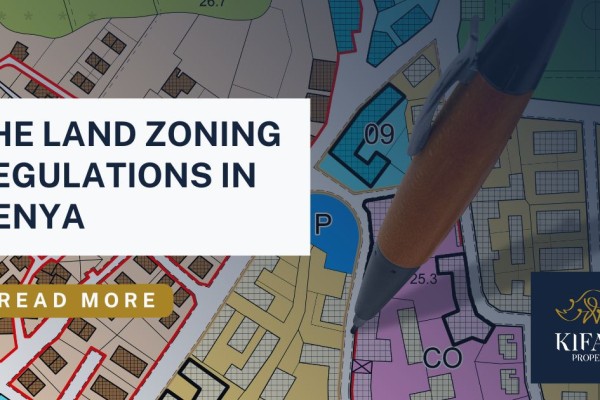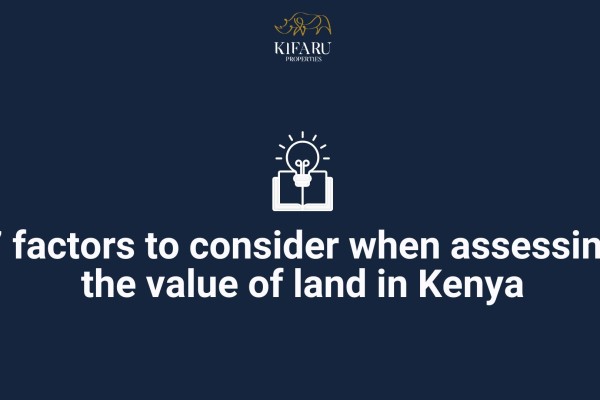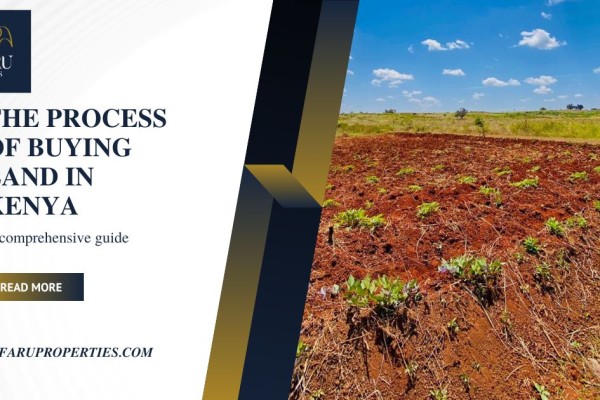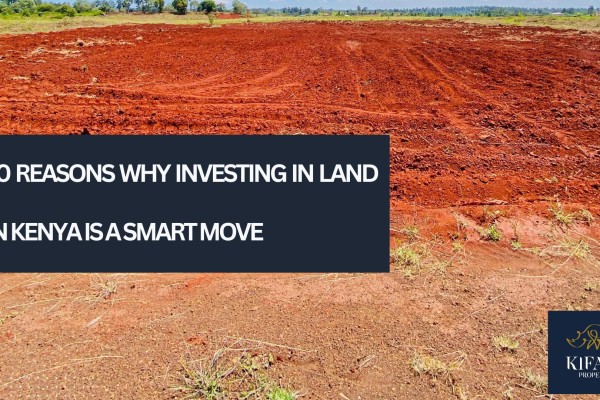- Oct 09, 2024
- Kifaru Meadows
- 433
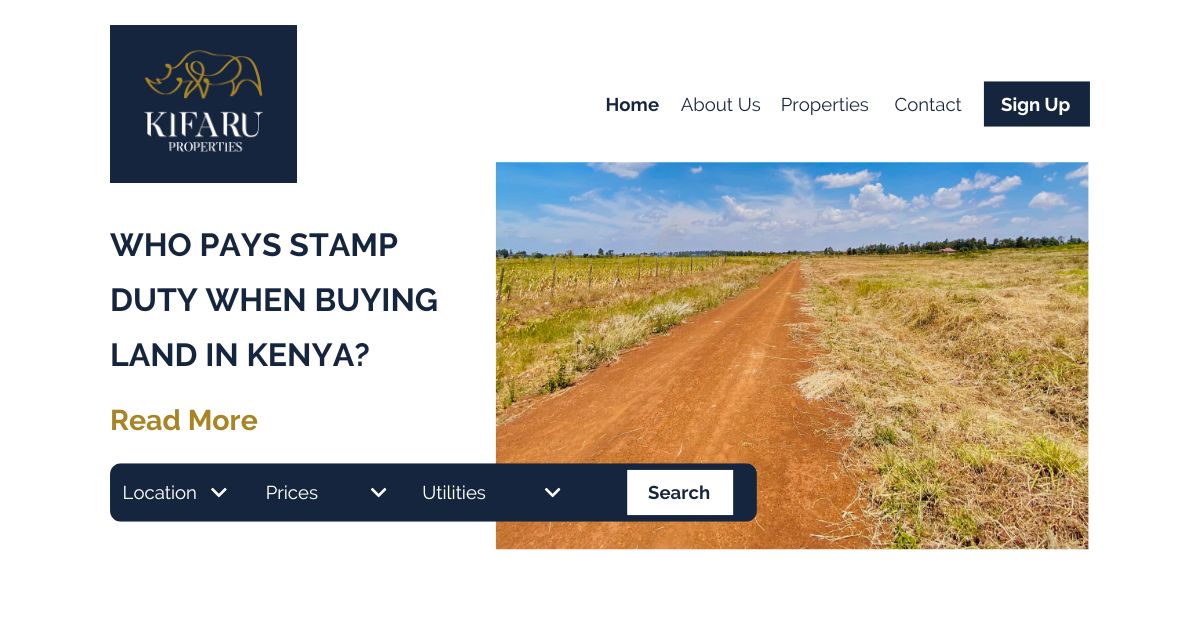
What is Stamp Duty?
Stamp duty is a tax levied by the government on certain legal documents, primarily related to the transfer of property ownership. In Kenya, it is governed by the Stamp Duty Act, Cap 480. The law mandates that all property transfers be stamped, meaning they must carry an official mark (or stamp) to validate that the appropriate tax has been paid. For land purchases, this stamp duty is applied based on the value of the land being transferred.
Who Pays Stamp Duty in Kenya?
In Kenya, the responsibility of paying stamp duty primarily falls on the buyer of the property. The seller's obligation is to transfer a valid title, while the buyer must meet the tax requirements before the ownership can be legally transferred.
The payment of stamp duty is required to finalize the land transfer process, and the law dictates that the buyer cannot officially take ownership until the tax has been settled. Therefore, even if other aspects of the transaction (such as paying the seller or securing financing) are complete, the buyer cannot claim ownership without the official stamp on the transfer documents.
How Much is Stamp Duty?
The amount of stamp duty payable depends on several factors, such as the property's location and its value. Generally, the rates are:
Urban areas: 4% of the value of the land or property.
Rural areas: 2% of the value of the land or property.
For example, if you're buying a piece of land in an urban area valued at Ksh 3,000,000, the stamp duty would be 4%, which amounts to Ksh 120,000. In contrast, for rural land valued at the same price, the stamp duty would be 2%, or Ksh 60,000.
How is the Stamp Duty Calculated?
The value of the land or property is determined either by the price agreed upon by the buyer and the seller (as documented in the sale agreement) or by a valuation done by the government’s Lands Department. The higher of these two values is typically used to calculate the stamp duty, ensuring the government receives an appropriate tax based on the land's market value.
When is Stamp Duty Paid?
Stamp duty must be paid before the property transfer can be registered at the Lands Registry. This means that even after signing the sale agreement and completing the payments to the seller, the buyer cannot be issued the title deed until stamp duty is settled.
Typically, the buyer’s lawyer handles the process of calculating and submitting the payment. Once paid, the Lands Registry will issue the official stamp on the transfer documents, finalizing the transaction.
Exemptions and Reliefs
Some buyers may qualify for exemptions or relief from stamp duty in Kenya. For instance, first-time homebuyers purchasing a property through a registered housing development scheme may receive partial or full exemptions under certain government programs.
Additionally, transfers between spouses or within families for inheritance purposes may be exempt from stamp duty, depending on the specific circumstances.
Conclusion
In Kenya, the buyer is responsible for paying stamp duty when purchasing land. This tax must be settled to finalize the transfer of ownership, and the rates depend on the location and value of the property. While stamp duty adds to the overall cost of buying land, understanding your obligations will ensure a smoother, more transparent transaction process.
